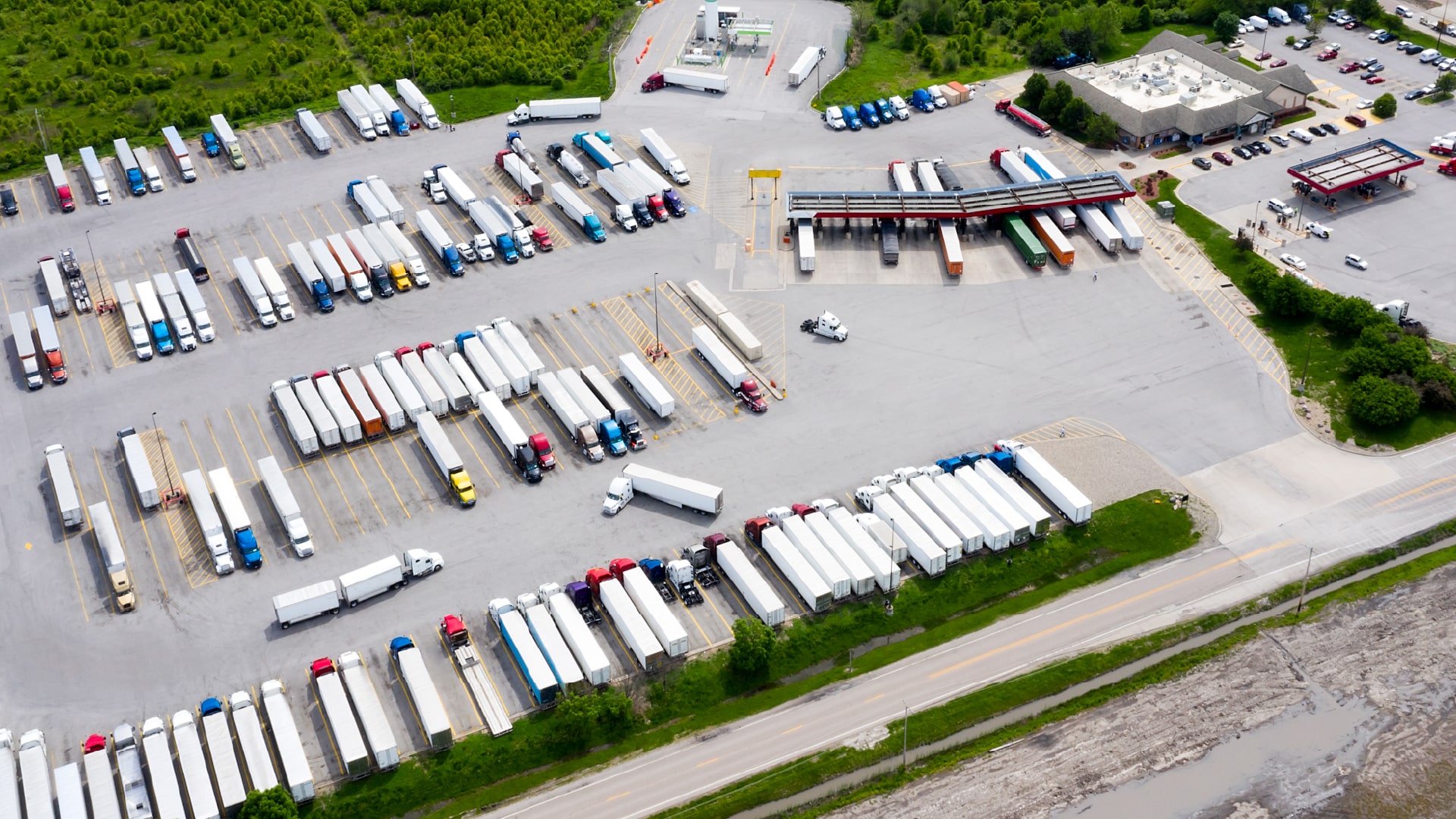Whose data is it anyway?
Read Dirk Schlimm's discussion about ownership of vehicle data in the fleet industry and learn why "who owns the data?" may be the wrong question to ask.


One of the questions that is being asked with increasing frequency is: “Who owns the data?” The reason is of course that more and more companies are understanding data as “assets” with high potential future value; at the same time, individual consumers of Internet-connected products and services have developed a keen awareness that they are no longer just a customer, but also “the product” — or at least part of it. LinkedIn and Facebook would not have a business without a massive amount of “free” user accounts. It is what strategists call the networking effect.
Given the huge importance of the logistics sector for the global economy (estimated at $4 Trillion or 10% of global GDP) it should hardly come as a surprise that the various players in the commercial transportation industry are asking the same question. Data-enabled fleet management is adding unprecedented economic value in terms of safety, productivity, and efficiency. In addition, smart, telematics-based transportation solutions can help to sharply reduce fuel consumption — a prized benefit as the road transportation sector is one of the largest sources of greenhouse gases in the U.S. and around the world.
Who owns the data?
While the question of “who owns the data?” sounds simple and straightforward enough, the answer is much more complex. As the lawyers like to say (with regard to almost any legal question): “It depends.” And depend it does indeed.
The first reason why ownership of data depends stems from the fact that not all data is created equal. As privacy and data expert Lothar Determann points out, some data simply cannot be “owned” at all.1 You may think you own your passport or social security number, and they are certainly “yours” in some sense, but you couldn’t (legally) sell them. And yet, being able to buy and sell what you or someone else owns is part of the essential concept of ownership. So, no, you don’t “own” your data in that case.
Furthermore, you may think of your vehicle data as “your data” — but so may quite a few other stakeholders. Some think they own the data because they: (1) own the vehicle, others because they (2) made it, (3) operate it, (4) manage it, or (5) drive it. They all think of the vehicle as theirs and therefore the data as their data. Five candidates for data ownership right there makes it obvious that origin of or connection with the data does not automatically answer the question of “ownership.”
The formula of “my car, my data” may work well in the consumer world but is much more complex in the commercial world where makers, owners, operators, managers, and drivers are all different entities or people. Also, just think of the difference between an executive with a company car, a service person who may use “their car” for business and private purposes, a professional truck driver, a taxi driver, and a “transportation provider” working “for" Uber.
The next reason why “it depends” are the different places where you, your vehicle and “your data” are located, especially since the vehicle is easily moving across borders. The question “who owns the data” pre-supposes that there is one universal answer, which, of course, is ludicrous. There are hundreds of national and state jurisdictions in the world. These jurisdictions often have fundamentally different legal traditions, and many have wildly opposed political systems.
Who should own the data?
Thinking that the law might provide a universal answer to the question also ignores the fact that there might be a contract in place (traditional paper contract or the now ubiquitous click-accept variety). In this case, the question becomes: “Who should own the data?” Here ownership, to the extent ownership is possible, no longer depends on what a legislator (from either end of the political spectrum) has decided is right, fair, and in the national interest, but on who has the bargaining power, the money, or both. And yet, contract clauses carry along the often overlooked, yet pesky, problem that one or more of the above referenced candidates for ownership were not at the table. So, there is much for public policy, legal and corporate experts to ponder and figure out.
In the meantime, however, we, in the real world, have to get on with business. We all know that data, utilized in the right way, has become a key asset that enables a tremendous amount of innovation and value creation, and the fleet management industry powered by advanced telematics is a key application of this. We simply cannot wait for lawmakers and their lengthy processes to figure things out for us. Innovation is happening now.
So what does a practical approach look like? While hugely complex as a legal concept, the beautiful aspect of data is that it can be used appropriately, legitimately and productively by more than one party. And this is where “who owns the data?” become the wrong question. Who owns the data sets up a paradigm of mutually exclusive ownership and a situation that game theorists would call “zero sum.” Ever since Morton Deutsch — one of the founding fathers of conflict resolution — we know, however, that there is such a thing called win/win. If we solve the problem together and creatively we can make things work for everyone involved. And data lends itself perfectly to doing just that.
So, the question must no longer be just “who owns the data?” but “who can use what data for what purpose?” This includes providing services, creating different kinds of data based products, limiting the use of individual or fleet related data, aggregating data, and so forth. Thus, if we answer the question creatively, pragmatically, and transparently we may serve our respective organizations much better and help to ensure ongoing innovation in the data powered world of fleet management. Thus, as often is the case in the creative problem solving process, start with asking the right question and take things from there.
1. “Data subjects do not own data concerning themselves in a property law sense” (Data Privacy Field Guide 6.109).↩
Related Reading:
White Paper: Preserving Privacy and Security in the Connected Vehicle: The OBD Port on the Road Ahead
Read more about privacy and security in the age of the connected car, and what the fleet industry address should do to address concerns, while preserving the benefits of OBD port data and promoting future innovation.
Subscribe to get industry tips and insights

Dirk Schlimm brings more than 30 years of experience as a business leader, a legal executive, executive coach and educator to his role at Geotab.
Table of Contents
Subscribe to get industry tips and insights
Related posts

The impact of unproductive idling on police vehicle service life
June 10, 2025
3 minute read

Multi-stop route planners: A fleet manager's guide + best tools in 2025
June 5, 2025
5 minute read

Commercial truck insurance cost: Rates by state + how to save
June 5, 2025
5 minute read

The ROI of telematics for truck lessors: Turn data into profit
May 27, 2025
3 minute read

